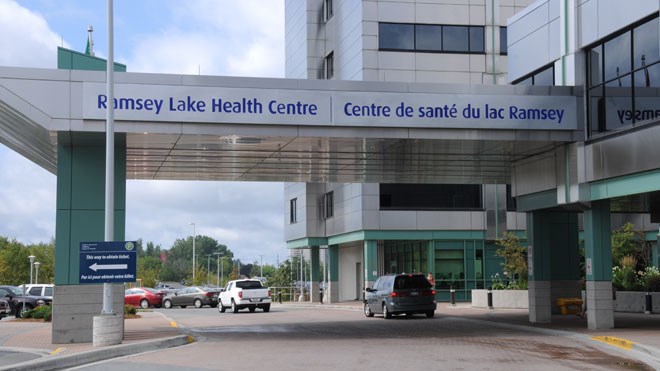The voices calling out to keep Health Science's North's breast assessment program intact are getting louder as two of the women helping lead the charge are taking to social media to spread the word.
HSN revealed last month that it was planning changes to the Breast Screening and Assessment Service (BSAS) whereby breast surgeons would no longer consult with patients at the BSAS clinic on the fifth floor of the former Memorial Hospital site.
Women would continue to have mammograms and other diagnostic tests there, as well as some biopsies and other assessment procedures. But breast surgeons would no longer see patients at seven clinics a month at the Sudbury Outpatient Centre.
Breast cancer survivor Sharon Murdock and registered nurse Anne Matte have been on the frontlines of the charge to push the hospital to find another way to find the $270,000 in the budget that it says it will be saving by eliminating on-site surgical consultations at the BSAS.
A group of Sudbury women, many of whom are retired nurses who are pushing to save the BSAS clinic, including Matte and Murdock met on Thursday, Oct. 11 to discuss their next moves. Their next steps include launching a Facebook group and sending out a letter addressed to HSN president Dominic Giroux, which will be circulated among influential groups and forwarded to Nickel Belt MPP France Gélinas.
"October is Breast Cancer Awareness Month so we want to get this out as soon as possible," said Murdock. "Not only do we want to urge the hospital not to make these cuts, but there is still some misunderstanding about what it is that is being cut."
In its current operational setup, the BSAS services 2,000 people, mostly women, annually.
"It's not the screening that is being cut, it's the breast assessment portion that's being dismantled or reduced significantly," said Murdock.
The process for a patient who would go through the BSAS service starts with their doctor diagnosing them or finding a breast abnormality, and are then sent for a mammogram. These patients are then automatically put into the nurse navigator process, where they have the surgeon who will be performing their surgery if necessary with them throughout the process, including biopsies.
"You know who your doctor is, the nurse navigator is in there for everything you're dealing with, you can call them any time to have things explained to you," said Murdock. "You're under a lot of stress when you're told you have breast cancer, so the nurse navigator and the receptionist who handles that office keep track of your whole movement right until you go into oncology after your surgery is done and they determine whether you're going to have chemo or radiation."
That part of the process as explained by Murdock, is what stands to be cut from HSN's budget, and a compromise that is currently being discussed would see 1,000 women with abnormal mammograms and other breast tests would being seen at four surgical consultation clinics a month at the BSAS.
That would mean about 1,000 of the 2,000 - 2,500 women a year who pass through the clinic would be referred to see surgeons in their offices.
The $270,000 accounts for the salaries of the nurse navigator, the receptionist, and the costs associated with operating the on-site surgical consultation portion of the BSAS.
"Compared to the hospital's budget...I know the hospital has to make changes but this is not the place to do it," said Matte. "It's one of the only women's programs and that's where they decide to make cuts. The letters are finally ready and they're going out today, detailing what the hospital wants to do and they'll be going to Dominic Giroux and France Gélinas. We're asking the people who receive the letters to send these letters directly to Dominic and France."
The group is also in the process of booking a "breast press conference" for late October to continue their push to keep the BSAS operating at full capacity.
"They've (HSN) set the criteria that it would be breast cancer patients and high risk patients that will be seen, but that doesn't meet the needs the other women that have a palpable mass," said Matte. "They need to be assessed, they need that lump assessed as well. We know 80 per cent of the time it's benign but that means 20 per cent of the time it isn't and for those 20 per cent that's a 100 per cent problem. They're telling the surgeons to see them at their office, but the surgeons are at full capacity with what they have and it often takes a year to get into a surgeon's office, where are those other 1,000 women supposed to go?"
Hospital officials continue to emphasize that the BSAS is not closing. It currently offers four types of services – screening mammography, diagnostic imaging such as mammograms and ultrasounds, biopsies and navigation by a nurse to the next step in care. Often that next step is a consultation with a surgeon.
Patients will continue to go to the clinic at HSN’s Sudbury Outpatient Centre for all services except navigation, which often includes a consultation with a breast surgeon.
Murdock and Matte are asking people who support their call to keep breast health services together in one place to write to leaders expressing that wish.
The group's Facebook page is expected to be up and running in the coming days, and can be found here or by searching "Save Breast Assessment at HSN" in the Facebook search bar.
